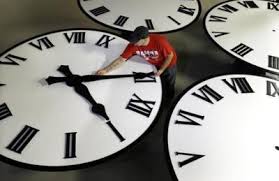Daylight Time Saving Poses Health Risks
ZMR NEWS
- 0
The study carried out in 2016 revealed that the rate of heart strokes increased by 8 % within two days of daylight saving time as loss of sleep by more than an hour could enhance risk of health issues. The study revealed that risk extended to all categories of sick individuals as cancer patients were 25% more likely to get stroke during that period while people older than 65 years or more were 20 % more likely to get a stroke. The study was carried out in Finland in which the researchers studied stroke data of nearly 3000 people that had been hospitalized within a week of shift to daylight saving time.

Study author Dr. Jori Ruuskanen from Turku University stated that risk of stroke is max during early morning hours and previous studies also showed that circadian clock gets disrupted due to sleep fragmentation and shift work rotation which increases the risk of heart stroke. Ruuskanen stated that as daylight saving time affects nations on that part of earth twice a year it increases the risks among a large population. It has been found that risk levels go down during the day as body and circadian clocks gradually adapt to changes.
Researchers are likely to present the details of these finding at Vancouver during the American Academy of Neurology next month. The team is meanwhile studying potential health effects of time shift. This is not the first time that opinion about potential health risks of springing forward has been expressed as in 2012 a study had been released by Alabama University about how daylight saving time during spring led to 10% increase in heart strokes. The Monday after that change several people have 40 minutes of less sleep due to which there perceptible increases in workplace injuries, moral decision making and auto accidents. Details of the study have been published in Perspectives on Psychological Sciences.

